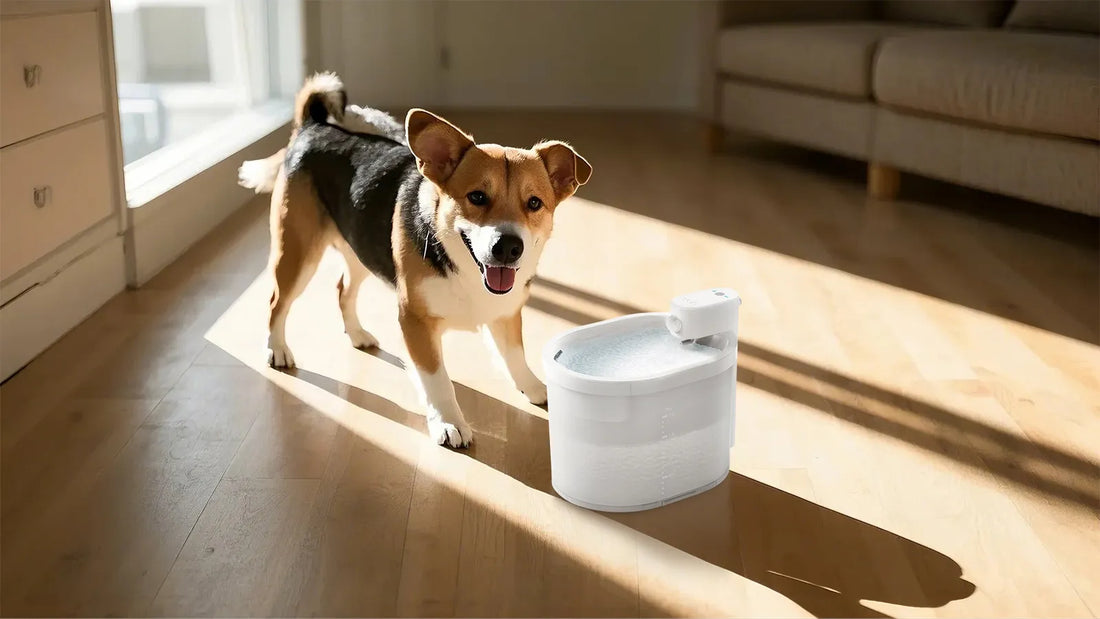If you've noticed that your dog is bloated and drinking a lot of water, it's natural to feel concerned. These symptoms can be alarming, but understanding the underlying causes and knowing how to respond can make all the difference in ensuring your pet's well-being. This article will guide you through the potential reasons for these symptoms, how to identify them, and what steps you can take to help your furry friend.
Understanding Bloating in Dogs
Bloating, also known as gastric dilatation-volvulus (GDV), is a serious condition that can affect dogs of all breeds and sizes. It occurs when the stomach fills with gas, food, or fluid, causing it to expand. In severe cases, the stomach can twist, cutting off blood flow and leading to life-threatening complications. While bloating can occur in any dog, certain breeds with deep chests, such as Great Danes and German Shepherds, are more susceptible.
Symptoms of Bloating
Recognizing the signs of bloating early is crucial. Common symptoms include a distended abdomen, restlessness, drooling, unproductive attempts to vomit, and rapid breathing. If your dog is bloated and drinking a lot of water, it could be a sign that they are trying to alleviate discomfort. However, excessive water intake can also exacerbate the condition, so it's important to monitor their behavior closely.
Excessive Water Drinking in Dogs
Polydipsia, or excessive thirst, can be a symptom of various underlying health issues. While it's normal for dogs to drink more water in hot weather or after exercise, persistent and excessive drinking could indicate a problem. Conditions such as diabetes, kidney disease, and Cushing's disease are common culprits. Additionally, certain medications and dietary factors can also lead to increased water consumption.
When to Be Concerned
If your dog is drinking a lot of water and showing signs of bloating, it's essential to consider the possibility of an underlying health issue. Other symptoms to watch for include changes in appetite, weight loss, lethargy, and frequent urination. If these symptoms persist, it's crucial to seek veterinary advice to rule out serious conditions and determine the appropriate course of action.
Potential Causes of Bloating and Excessive Thirst
Several factors can contribute to your dog being bloated and drinking a lot of water. Understanding these causes can help you take preventive measures and seek timely treatment.
Dietary Factors
Diet plays a significant role in your dog's digestive health. Feeding your dog large meals or allowing them to eat too quickly can increase the risk of bloating. Additionally, certain foods, such as those high in fat or fiber, can cause gas buildup in the stomach. Ensuring that your dog has a balanced diet and eats at a moderate pace can help prevent bloating.
Dehydration and Electrolyte Imbalance
Dehydration can lead to excessive thirst as your dog's body tries to compensate for the lack of fluids. However, drinking too much water too quickly can cause bloating. Electrolyte imbalances, often caused by dehydration, can also contribute to these symptoms. Providing your dog with access to fresh water and monitoring their intake can help maintain proper hydration levels.
Underlying Health Conditions
As mentioned earlier, conditions such as diabetes, kidney disease, and Cushing's disease can cause both bloating and excessive thirst. These conditions require veterinary diagnosis and treatment. Early detection and management are key to preventing complications and ensuring your dog's quality of life.
What to Do If Your Dog Is Bloated and Drinking a Lot of Water
If you notice that your dog is bloated and drinking a lot of water, it's important to take immediate action. Here are some steps you can take to help your pet:
Monitor Their Behavior
Keep a close eye on your dog's behavior and symptoms. Note any changes in appetite, energy levels, and bathroom habits. This information can be valuable for your veterinarian in diagnosing the underlying cause.
Limit Water Intake
While it's important to keep your dog hydrated, excessive water intake can worsen bloating. Offer small amounts of water at regular intervals rather than allowing your dog to drink large quantities at once.
Seek Veterinary Help
If your dog's symptoms persist or worsen, it's crucial to seek veterinary help immediately. Bloating can be a life-threatening condition, and prompt treatment is essential. Your veterinarian may perform diagnostic tests, such as blood work and imaging, to determine the cause and recommend appropriate treatment.
Preventive Measures
Preventing bloating and excessive thirst in your dog involves a combination of proper diet, regular exercise, and routine veterinary care. Here are some tips to help keep your dog healthy:
Feed Smaller, Frequent Meals
Instead of feeding your dog one or two large meals a day, consider offering smaller, more frequent meals. This can help prevent the stomach from becoming overly full and reduce the risk of bloating.
Encourage Slow Eating
If your dog tends to eat quickly, consider using a slow feeder or puzzle toy to encourage slower eating. This can help prevent gas buildup and reduce the risk of bloating.
Regular Exercise
Regular exercise is essential for your dog's overall health and can help prevent bloating. However, avoid vigorous exercise immediately after meals, as this can increase the risk of bloating.
Routine Veterinary Check-ups
Regular veterinary check-ups are crucial for early detection and management of underlying health conditions. Your veterinarian can provide personalized recommendations based on your dog's age, breed, and health status.
If your dog is bloated and drinking a lot of water, it's essential to take these symptoms seriously. By understanding the potential causes, monitoring your dog's behavior, and seeking veterinary help when needed, you can ensure your pet's health and well-being. Remember, early intervention is key to preventing complications and keeping your furry friend happy and healthy.













